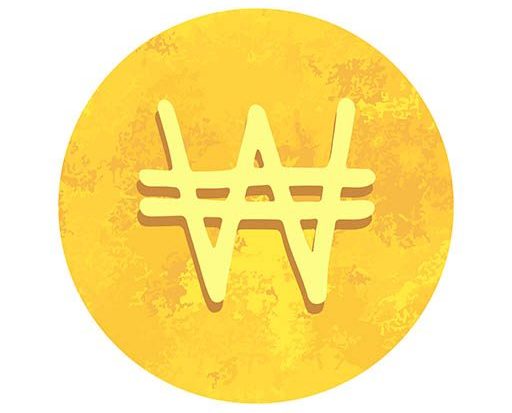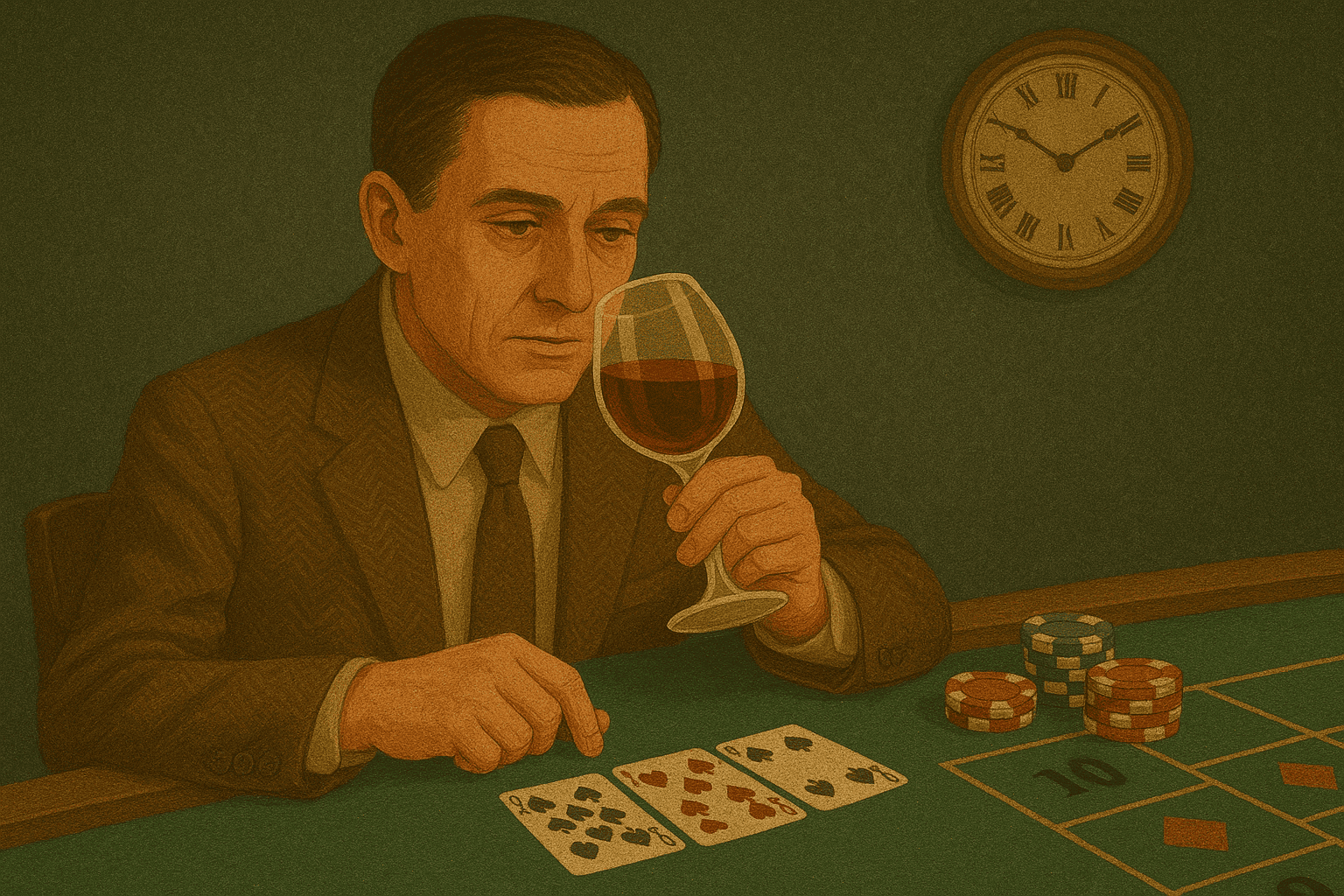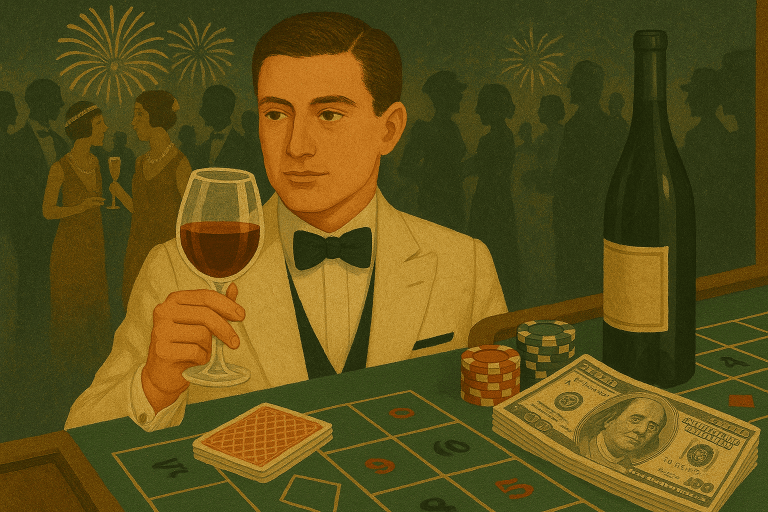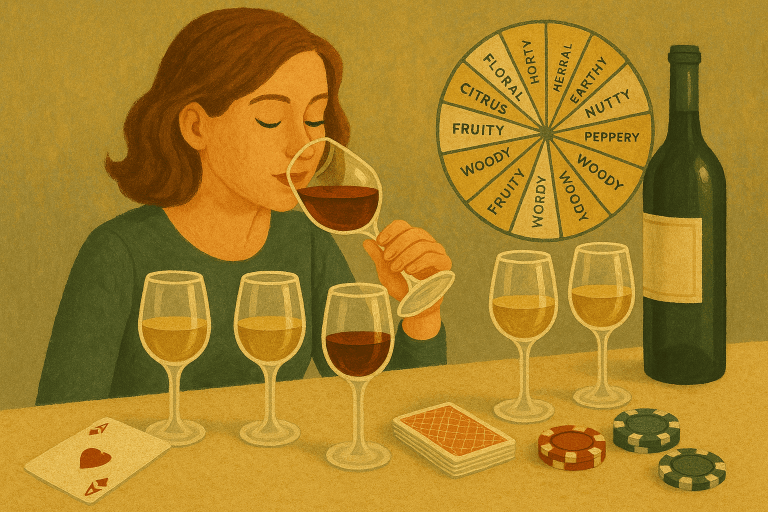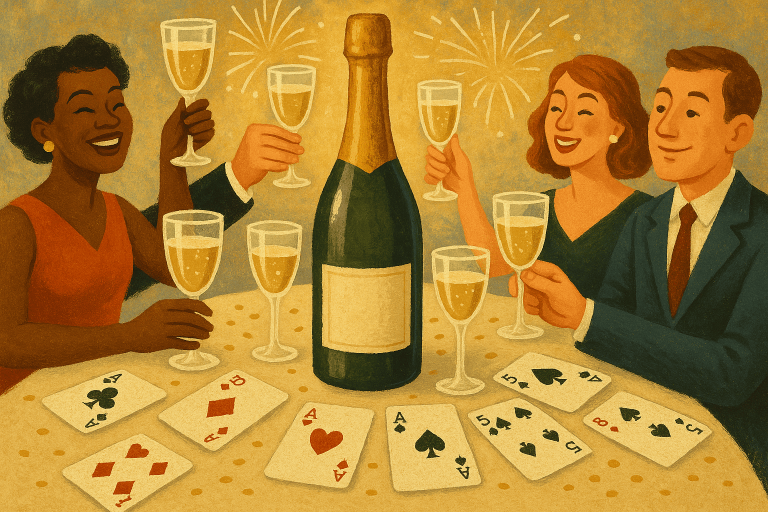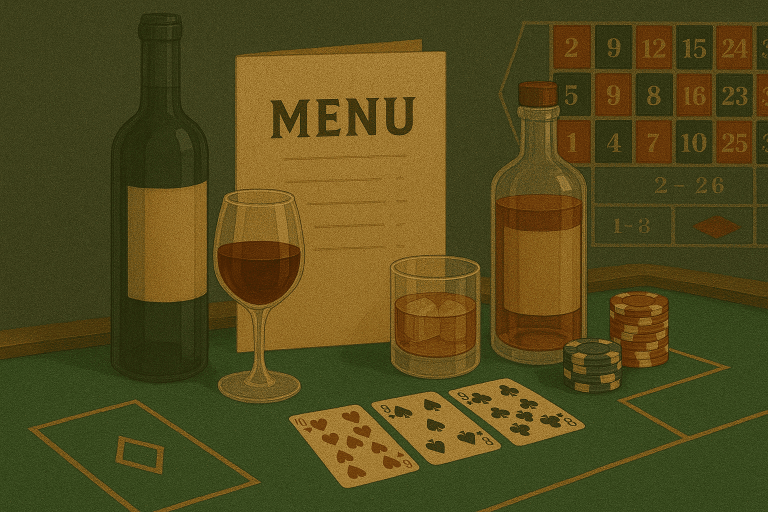Why the Best Players Drink Slowly
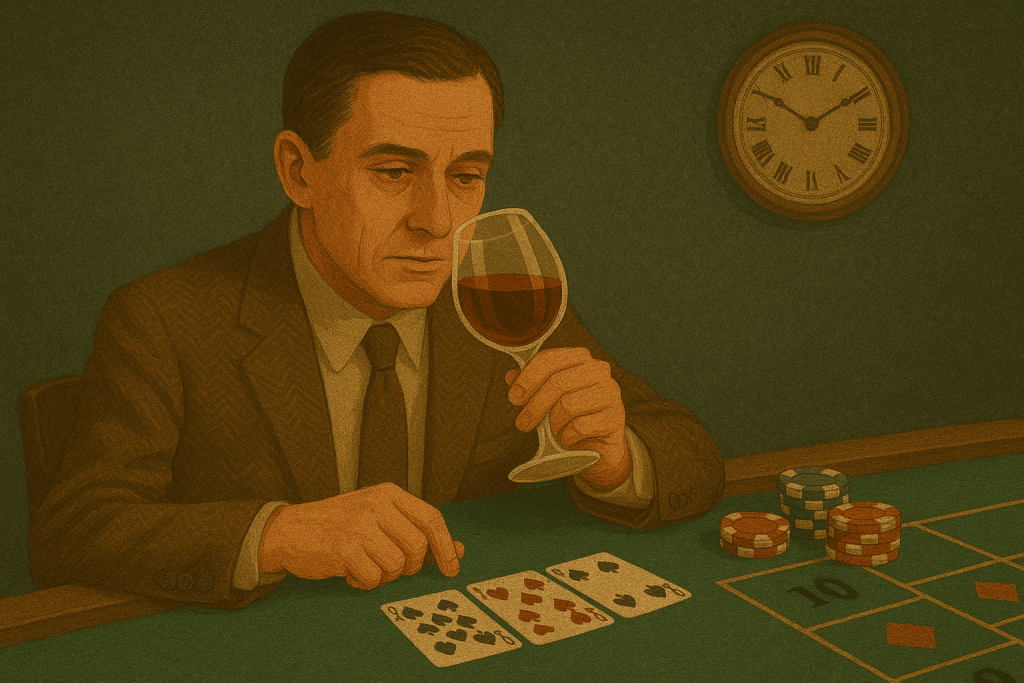
Slowness as a secret weapon
In a world where games flash, reels spin, and winnings scream in neon, there’s something subversive — even radical — about moving slowly. Yet the best players do exactly that. They pause. They watch. They wait.
And some of them, before they play, pour a glass of wine.
It’s not a luxury. It’s a mindset.
The wine ritual: training for risk
Wine teaches patience. You don’t chug a Brunello. You don’t gulp Chablis. You swirl, you observe, you inhale, you sip. Every motion is a decision. Every pause adds depth.
This same rhythm benefits gamblers — especially online. The best players don’t click recklessly. They calculate. They know when to fold, when to double, when to log off entirely.
The ritual of wine drinking is a rehearsal for measured risk. It trains the brain to seek quality over speed. To distinguish a real opening from a tempting illusion.
The power of presence
Wine is a sensory anchor. In a casino — virtual or real — that anchor can mean everything.
Surrounded by lights, sound effects, bonuses, and bonuses on top of bonuses, it’s easy to lose center. But holding a glass — something real, grounded, deliberate — reminds the player that they are in control. Not the algorithm. Not the room.
A sip before a hand is a form of mindfulness. It slows the blood. It centers the thought.
It turns the game from impulse to intention.
Dopamine vs. discipline
Casino systems are designed to trigger fast pleasure: spinning, winning, lights, applause. Wine does the opposite. It rewards waiting. It develops. It reveals itself.
When these two forces meet — the fast and the slow — something interesting happens. Players who are used to delay gratification make better choices. They’re less likely to chase losses. Less likely to tilt. More likely to leave ahead.
Why? Because they’ve practiced saying “no” to the second glass. Or to the first.
The elegance of restraint
There’s style in not rushing. Just as a well-aged wine shows elegance through structure and patience, a refined player shows skill not by constant betting — but by restraint.
Discipline isn’t boring. It’s powerful. In the long run, it’s profitable.
In both wine and gambling, those who win are those who wait.
Turning habit into edge
Pouring a glass before logging in. Pausing before each move. Taking real breaks. These aren’t just habits — they’re tactics.
They’re how emotion gets managed. How bankrolls survive. How play becomes strategy, not compulsion.
And players who build these habits early build longevity. They don’t just burn bright — they last.
Pleasure that doesn’t punish
Wine and gambling share one critical trait: they can delight — or destroy. The line between the two often comes down to pace.
Those who move fast, without intention, are more likely to lose both money and meaning. Those who slow down, who taste rather than swallow, are more likely to extract value — and joy.
The best players know this. They’ve learned to drink slowly. And they apply that same care to the game.
The art of the measured mind
Slowness isn’t weakness. In the noisy arena of online gambling, it’s a strength. The players who win over time are those who know when to pause, when to sip, when to act.
The wine glass becomes a mirror — showing us not just what we enjoy, but how we choose.
So the next time you play, ask yourself: Am I drinking — and playing — like someone who wants to win?
